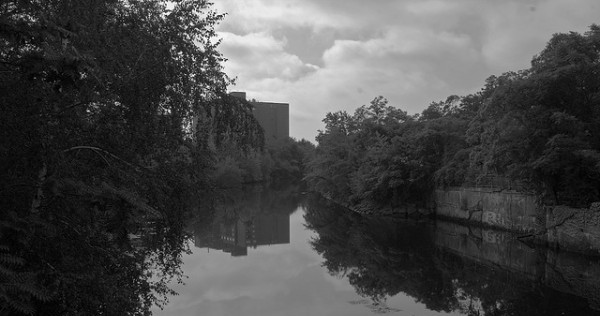Going Home, Going Away
At a 50th high school reunion, a well-known traveler recalls his pride in the hometown he was so eager to leave behind

It is not a good idea to disparage your hometown in print just days before returning for a boisterous high school reunion. But it was out of my hands: a breezy remark attributed to me in a recent book was recycled by a sniping columnist with space to fill.
“You’re a target,” one of my friends said, when I told him I was planning to go to this 50th reunion. He was referring to my saying of Medford, Massachusetts, “It was not a bad place, but a place you want to leave, to escape from. I thought it would be death to stay there, that I would just be swallowed up. It was all right to grow up there, but to stay there? Fatal.’’
Not a bad place at all. I lived there for 18 years and thrived, in my schoolboy role of geek, Boy Scout, and second-string soccer player. Our family house was in North Medford, near the edge of town, a long walk down Elm Street to the trolley car for Boston; a much simpler walk took me to the wooded solitude of the Middlesex Fells. My favorite childhood book was Lost on a Mountain in Maine, by Donn Fendler. I wanted to go to Maine and get lost (and found) like little 12-year-old Donn.
After high school, I went away. First to college, then to Africa, and then to Singapore as a teacher. Then to Britain as a husband and father. To China and Peru, Afghanistan and Easter Island, Patagonia, Uganda, New Guinea, and elsewhere. And often in remote places, I was consoled by memories of the Fells in autumn; of Wright’s Pond where I’d been a lifeguard; of the brick-and-ivy-covered Medford High School, with illustrious names carved on its upper façade—Shakespeare, Homer, Franklin.
Fifty years passed. Then I went home. Of this class of 500, more than 120 students returned, some with spouses, bringing the total to 185. Most in this joyous crowd squinted in my direction and welcomed me. To some others I was indeed a target. But it was all a family, or perhaps a tribe. Among people you know well, it’s easy to distinguish teasing that is intended as affectionate from teasing that’s cruel.
Singled out for my remarks by one of the emcees (“And Paul Theroux had the nerve to say . . . ”), I answered back, as I would have in high school, standing up, jawing, “I was misquoted!” The hostile moment passed in forgiving laughter.
[adblock-left-01]
Everyone in the room was 68 and grateful to be alive. All had been workers—men and women alike. I admired them for their labor. A good friend was now a retired pipe fitter; a woman I had known since grade school—62 years ago—had been a teacher. A fellow geek had been a policeman, his brother too (“But he was dragged to death by a drunken driver”). Two retired from the Navy, one from computers, three from real estate; a law professor, at least three other lawyers, including a woman with the World Bank. A dentist, a drug counselor. Many had done jobs now obsolete—in manufacturing, a now-defunct butcher shop, a Boston fruit business. Some were still working. Two owned restaurants. Another: “I deliver flowers. A great job. People love to get flowers.”
To tell the truth, I had not been misquoted. I had fled the town. The word transformation was not in my childhood vocabulary, but if it had been, I would have said that I wanted to be transformed by the wider world. Yet I was proud of my hometown.
I knew that Medford had flourished as a shipbuilding center—the elegant main library had once been a shipbuilder’s mansion. Rum, too, had been a Medford product. The infamous triangular trade had brought slaves to Medford. Lydia Maria Child, a Medfordite, had written a radical abolitionist book (An Appeal . . . ) in 1833, as well as the Thanksgiving poem that begins “Over the river and through the wood/ To grandfather’s house we go.” Paul Revere had galloped through Medford to warn of the British attack on Boston. Nathaniel Bishop had left Medford in the 1850s to write travel books. Henry James had used Medford as the setting for a ghost story. But I knew, like Lydia Child, Amelia Earhart, Fannie Farmer, Michael Bloomberg, and Bette Short (aka “The Black Dahlia”), that the city limits of Medford would not be the perimeter of my life.
In my wandering absence from Medford, I had become the person I had yearned to be: unencumbered, beholden to no one, self-supporting, a writer. The Boston and Maine train whistles of my boyhood had sounded in my dreams like a summoning to distant places. The Mystic River, at the margin of Medford Square, had always been a reminder of the great ocean it entered, just a few miles east, flowing mystically into the world, and I had followed it.

